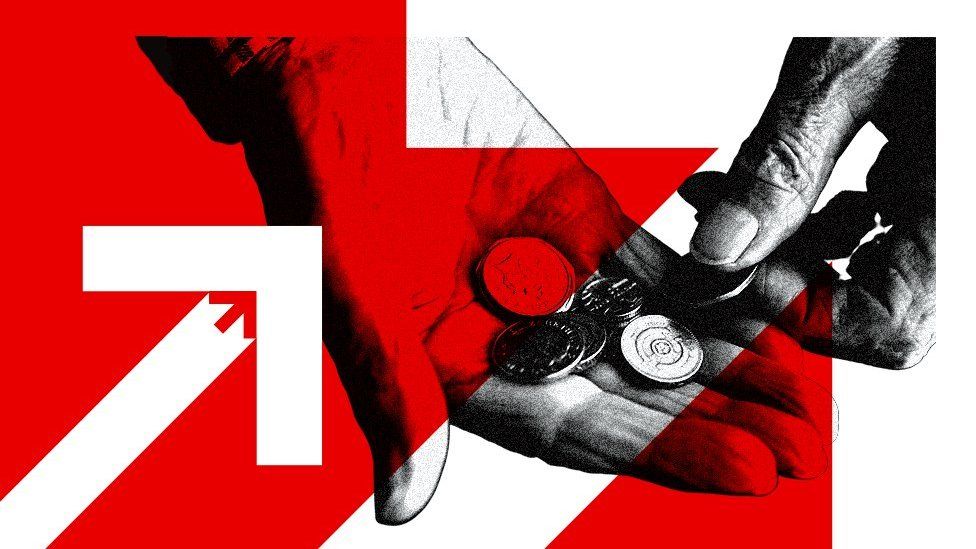
The rate at which prices are rising remained unchanged at 8.7% in May, despite predictions it would fall.
Food inflation on items like bread, cereal and chocolate has come down slightly, although remains high at 18.3%.
What does inflation mean?
Inflation is the increase in the price of something over time.
If a bottle of milk costs £1 but £1.05 a year later, then annual milk inflation is 5%.
How is the UK’s inflation rate measured?
The Office for National Statistics (ONS) tracks the prices of hundreds of everyday items in an imaginary “basket of goods”.
The basket is constantly updated to reflect shopping trends, with the most recent changes adding frozen berries and removing Alcopops.
Each month’s inflation figure shows how much these prices have risen since the same date last year.
You can calculate inflation in various ways, but the main “headline” measure is the Consumer Prices Index (CPI).
What is core inflation?
Core inflation excludes the price of energy, food, alcohol and tobacco.
While overall inflation has been on a general downward path this year, core CPI inflation rose to 7.1% in May – that’s up from 6.8% in April and the highest its been since 1992.
The Bank of England considers this number as well as the headline inflation figure when deciding whether to change interest rates.
Why are prices rising so fast?
Soaring food and energy bills have helped drive inflation up.
Alcohol prices in restaurants and pubs also rose.
Your device may not support this visualisation
How does raising interest rates help to tackle inflation?
The Bank of England has a target to keep inflation at 2%, but the current rate is well above that.
This makes borrowing more expensive, and can mean some people with mortgages see their monthly payments go up. Some saving rates also increase.
When people have less money to spend, they buy fewer things, reducing the demand for goods and slowing price rises.
Businesses also borrow less, making them less likely to create jobs, and may cut staff.
But when inflation is caused by factors such as global energy prices, action from the Bank of England may not be enough to slow it down.
Are wages keeping up with inflation?
Many people’s pay isn’t keeping up with rising prices.
But when you take inflation into account, regular pay actually fell by 1.3% in the three months to April, compared with the same period the year before.
When will inflation go down?
Lower inflation doesn’t mean prices fall. It just means they don’t rise as quickly.
When the Bank announced its May interest rate decision, it said headline inflation would “fall sharply from April”, while warning food price inflation was likely to fall back more slowly than previously expected.
It predicts inflation will drop to 5% by the end of 2023, rather than the 4% it had been anticipating.
What’s the inflation rate in Europe and the US?
Other countries have also been experiencing a cost-of-living squeeze.
Many of the reasons are the same – increased energy costs, shortages of goods and materials and the fallout from Covid.
The European Central Bank has also been increasing interest rates to try to bring eurozone inflation down. Its benchmark rate is now 3.5%, the highest it has been for 22 years.
However, it left rates unchanged in June, saying it wanted time to assess the impact of the rate rises made so far.